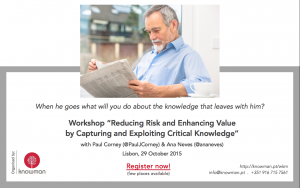John Corney, my Dad, died in August a month shy of his 87th birthday. Though not unexpected the timing of it was. I was lucky in the sense I got to say goodbye and to reflect while he was still with us on his amazing contribution to and guidance for my own life.
Dad was a ‘lovely man’ a phrase / tribute we oft heard from those who knew him and a private man. I realised as he neared the end of his life that though we were close there were so many aspects of his background that were opaque to me.
He was of the ‘old school’ a meticulous senior banker involved in international trade who passionately believed ‘my word is my bond’ and that debt is a commitment to be honoured. He was not loquacious or a natural storyteller; instead he eschewed the limelight though he was well read, capable of deep insight and eager to debate topics he found stimulating.
For him ‘social’ was a word associated with a gathering of people not an online activity. Though he recognised the value of the internet, Apps, Smartphones and Tablets were alien concepts to him.
What you might ask has this personal story got to do with business? Here’s how:
- As Executor of his estate charged with carrying out his wishes I wanted to understand the thinking behind his approach to investment.
- I also wanted to understand more about his early life and how he made decisions.
- Dad was similar to many senior executives who are often reluctant to acknowledge that their contribution has been significant.
Perhaps subliminally I drew on many of the techniques I encourage others to adopt when trying to capture critical knowledge from people about to retire or relocate:
- I used a timeline to look at significant milestones in his life with photos as a prompt.
- We talked about books he had read that had helped shaped his thinking.
- We talked about people he most admired.
- We went through his ‘blue book’: a transactional history and ledger of all assets.
- We sat and watched something and used that as a neutral space for a conversation.
- I spent days ploughing through his archives.
A big regret is that I didn’t record any of these discussions but the stories and artefacts remain and I am now their custodian with a duty to pass them onto his great grandchildren so that they too can appreciate John’s legacy.
And finally
When people leave organisations after a long period legacy is a word often cited as the justification for a knowledge capture interview. What many overlook is the step of thinking up front what is the critical knowledge they are looking to surface during the process.
This mirrors many of the stories emerging from the interviews my co-author Patricia Eng is undertaking for “Navigating the Minefield: A Practical KM Companion” book which we are aiming to publish next year. Often the driver for these initiatives has been a reorganisation, takeover or downsizing; in effect a firefighting exercise.
Setting up a programme to consciously capture knowledge is expensive and time consuming: it needs a clear rationale/driver and a set of measurements to track its efficacy and value.
 I am looking forward to evolving my own thinking when I am in Lisboa next month running this masterclass with Ana Neves. It aims to raise awareness of the importance of critical knowledge: how to identify it, how to go about capturing it and how to go about making it available for reuse.
I am looking forward to evolving my own thinking when I am in Lisboa next month running this masterclass with Ana Neves. It aims to raise awareness of the importance of critical knowledge: how to identify it, how to go about capturing it and how to go about making it available for reuse.
